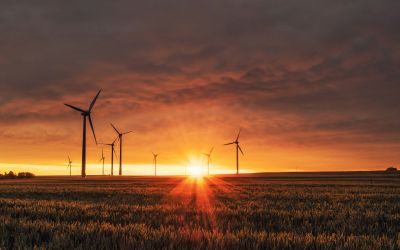New report finds rapid rollout of clean technologies makes energy cheaper, not more costly
Key task for governments is to make clean energy technologies more accessible to those that may other-wise struggle with the upfront costs, new IEA special report finds

Speeding up the move to clean energy technologies improves the affordability of energy and can relieve pressures on the cost of living more broadly, according to a new IEA special report released today.
The report, Strategies for Affordable and Fair Clean Energy Transitions, shows how putting the world on track to meet net zero emissions by 2050 requires additional investment but also reduces the operating costs of the global energy system by more than half over the next decade compared with a trajectory based on today’s policy settings. The net result is a more affordable and fairer energy system for consumers.
In many cases, clean energy technologies are already more cost competitive over their lifespans than those reliant on conventional fuels like coal, natural gas and oil.
Realising the gains of clean energy transitions hinges on unlocking higher levels of upfront investment. This is especially the case in emerging and developing economies where clean energy investments are lagging.
Moreover, distortions in the present global energy system in the form of fossil fuel subsidies favour incumbent fuels, making investments in clean energy transitions more challenging.
“The data makes it clear that the quicker you move on clean energy transitions, the more cost effective it is for governments, businesses and households,” said IEA Executive Director Fatih Birol. “If policy makers and industry leaders put off action and spending today, we will all end up paying more tomorrow.”
The report finds that incentives and greater support, particularly targeted at poorer households, can improve the uptake of clean energy technologies.
The report sets out a series of measures, drawing on proven policies from countries around the world, that governments can deploy to make clean technologies more accessible. These include delivering energy efficiency retrofit programmes to low-income households; affordable clean transport options and using carbon price revenues to tackle potential social inequities during energy transitions.
Policy intervention will be crucial to address the stark inequalities that already exist in the current energy system, where affordable and sustainable energy technologies are out of reach for many people.
The report warns that the risk of price shocks does not disappear in clean energy transitions and the shift to a more electrified energy system also brings a new set of hazards into play. Power systems are vulnerable to an increase in extreme weather events and cyberattacks, making adequate investments in resilience and digital security crucial.
Find out more here.



_400_250_s_c1.png)


